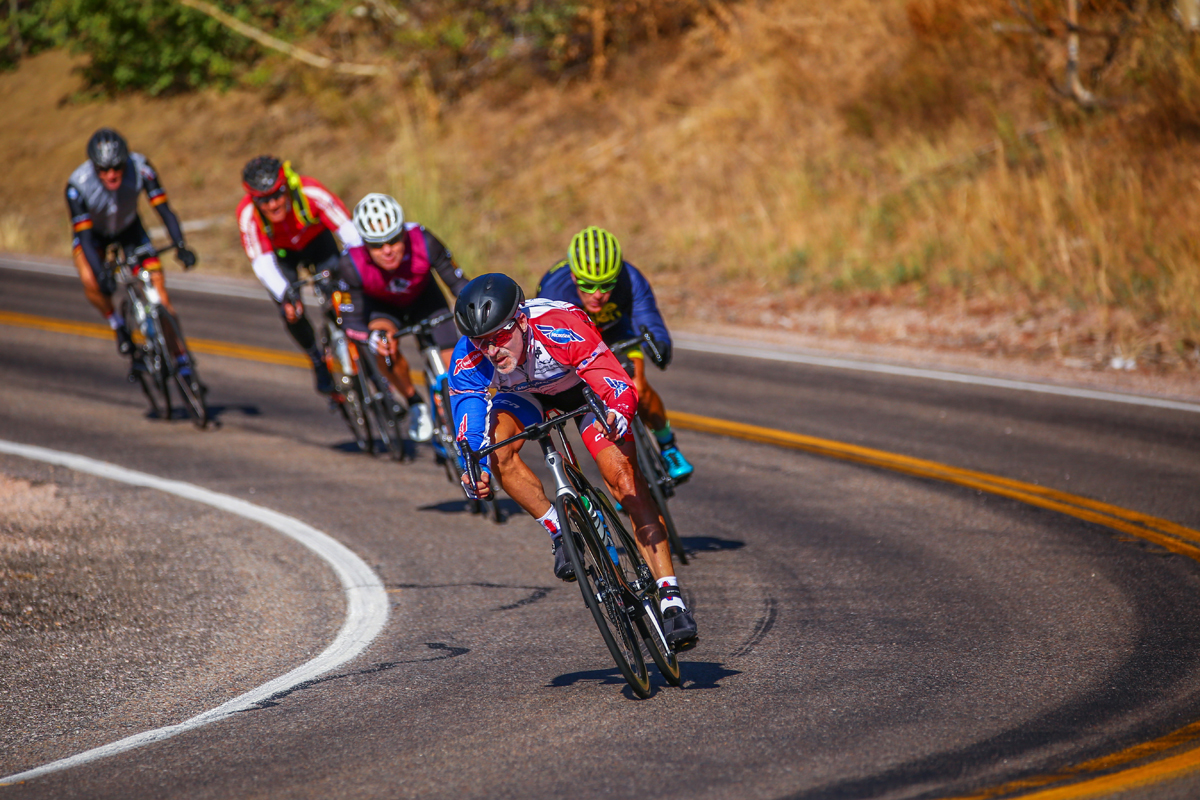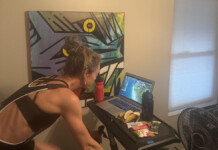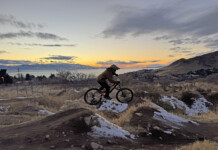By Eric Yelsa — In the previous article we discussed the process of aging, psychological and physical changes associated with aging, and explored how aging impacts sport participation and in particular cycling participation. Of the factors identified as having influence on how we proceed through the aging and sports participation process, intrinsic and extrinsic motivation, social identification and neurotic drive (also known as motivational drive), and the grief process were viewed as various models that offer some explanation as to interaction between age and sports. From this perspective it was concluded that it was not so much age itself that was alarming, but the potential existential threat aging presented that might raise risk of separation from sport participation or separation from one’s identified peer group.
In this article we will continue our exploration of the process of age and sports by examining strategies to set appropriate competitive expectations, maintain motivational drive, and how to recover from setbacks related either due to injury or age-related factors.

In a brief review of my previous article on aging and cycling, whereas the intrinsic factor of neuroticism was considered the initial prompt to engage in a sport (motivational drive), the extrinsic factor of social affiliation was considered the factor that continued to provide positive reinforcement for participation in that sport over time (social identity). Or, stated differently, one initially participated in a sport because of the positive effects on mood, but continued to participate in that sport over time because it gave one a sense of social identity and perceived safety. Further, the actual process of adjusting to those age-related changes was compared to Elizabeth Kubler-Ross’s stages of death and dying that includes the stages, denial, bargaining, anger, depression, and acceptance.
Here I attempt to address how to implement strategies for coping with inevitable age-related changes into pragmatic daily interventions.
It’s early Summer, the sun is up, and cycling events are more frequent. You’re out on your bike, and in a group paceline. The pace starts out reasonable, but soon you find your breathing labored, your legs heavy and slow, and you feel muscles tensing throughout your body. You quickly come to recognize this as the moment just before bonking and getting dropped off the back of the group. Maybe you have some private words with yourself. Maybe you haven’t been riding and you’re able to reason with yourself about being more consistent in your training. Maybe you’ve been ill and now recovering. But maybe you’ve been consistent in your riding. Maybe your health is just fine. Maybe your only explanation for lower performance is age. Now what?

If you’re like the general population the next few minutes to hours may be dominated by self-examination and assessing your understanding of why you may not be performing to the level you think you should. Based on your level of optimism you may conclude that you will continue to cycle, that you may need to modify your training, and that perhaps there are some changes in your performance expectations that may be in order due to age changes. But this type of calm and clear logic is unlikely. What is more likely is a tendency to look for external explanations of why your fitness is not where it should be. You might conclude that others in your cycling group might be resorting to performance enhancing supplements. You might conclude that maybe you’re not trying hard enough. You might even conclude that those in your pace group were working together to make your time in the group that much more difficult. But it is initially unlikely that you will identify age-related factors as being responsible for a decline in performance.
The above type of phenomenon where one tends to search for explanations of sub-par performance that do not indicate personal failure is referred to as fundamental attribution error. Fundamental attribution error can be considered nature’s strategy for us to maintain a sense of competence, even if our sense of competence is inaccurate. It asserts that in situations where we view ourselves as falling short of our expectations, that we will look to find explanations that identify factors outside our control as being instrumental in our poor performance.
An example of fundamental attribution error might be illustrated by walking down the sidewalk and tripping. Based on fundamental attribution error, the individual who trips on the sidewalk may find an explanation for tripping related to something about the condition of the sidewalk itself. Think “I tripped on the sidewalk because it had a crack in it.” On the flipside of this phenomenon, is the tendency for individuals to identify personal characteristics of others as explanations for their poor performance. Think “That person tripped on the sidewalk because that person is clumsy.”
What is interesting with this phenomenon is that our explained attributions flip when we experience positive outcomes. Think “I got this new job because I’m the best suited for the position” as opposed to “that person got the job because they were lucky.” We like to think bad things happen to us due to outside factors and good things happen to use because we work hard and deserve it; while bad things happen to other people because they deserve it while good things happen to other people just due to luck.
From a performance and coping perspective fundamental attribution error represents a variation on Elizabeth Kubler-Ross’s stage of denial from her stages of death and dying. In the process of attempting to preserve one’s self image, one is at much higher risk of misidentifying the factors contributing to lower performance. The result is that effort to improve the situation is misdirected, and therefore an appropriate course of correction is compromised.
So how to do you correct for denial? The first step is to allow yourself to discuss the specific details of the loss with a peer. When did you become aware of changes in your fitness? What were the series of events that lead you to being aware of less physical strength? What do these physical changes signal to you? Do you have initial thoughts about your future in cycling? Are there performance goals that you believe are no longer obtainable and are there goals that you can still achieve? This process can be difficult, and individuals may find themselves debating various facts in their mind over the course of months before coming to full awareness regarding changes in their ability to ride a bike or any life altering event.
The following are questions you might ask yourself if you are aging and notice a change in your cycling:
-
- What is it that you enjoy most about cycling?
- What aspects of cycling have been negatively impacted due to a decline in physical ability?
- To what extent do you think performance decline might be age-related?
- Is there anything in cycling that you don’t miss that has been impacted by your age?
- How does cycling help you cope with other aspects of your life?
- What implications do you see related to decreased cycling performance within the
- next year,
- in 2 years,
- in 5 years, etc …
- What does getting old mean to you?
- Who are the older individuals in your life who you consider role models for aging? Why?
- Who are the older individuals in your life who you consider poor role models for aging? Why?
- Were you raised with any stereotypes about older individuals? How do you think these stereotypes might have influenced your current opinions regarding age and getting older?
These questions are specifically designed to assist in better clarifying the role cycling plays in one’s life, and therefore allows one to find adjustments to meet needs that may not otherwise be met without cycling. But without engaging in these questions, one is less likely create a balanced intervention that allows one to appreciate what aspects of cycling can continue unchanged, what aspects of cycling may no longer be possible, and what aspects of cycling may need to be modified.
Once one comes to an understanding of the role cycling played in one’s life and how the future will be impacted by age-related changes, then active adaptation can occur. In this stage one may find themselves expanding their support network, engaging in new hobbies to fulfill interests no longer filled by cycling, and changing the way they engage in cycling altogether. If still cycling, then in what situations does cycling become more difficult? Are there events which no longer appear appropriate due to age, while are there other events that appear more appropriate due to age? Are there specific advantages of cycling that were once available but are no longer possible due to age? If so, are there other opportunities available in which to realize those advantages?
Older cyclists may not only face difficulty from their own biases but may also face resistance from others in their life. Many older athletes become the target of negative stereotypes from family, friends, and colleagues. Other’s may say things like “What are you doing cycling all the time? Grow up and be your age.” In review of literature regarding sports and aging, the results are mixed regarding any potential benefit. While there are many physical advantages of sport participation as an older athlete, the literature regarding the benefits of sports participation on emotional, spiritual and other dimensions of health with age are limited, unclear and require more research.
I have heard it said over and over that ignorance is bliss. And to some extent this is true. Think about the amount of ignorance you use to deny the level of risk of injury while driving your car. Are other drivers really all that concerned of your wellbeing? Probably not, but you need to drive to get to work, and ignorance helps to get you in the car.
In situations like the one we are discussing; ignorance becomes a major obstacle that potentially separates one from enjoying their sport. Ignorance may influence one to join cycling groups that fall outside one’s skill level, prompt individuals to potentially train in a fashion not appropriate for their age-related needs and may prompt one to create goals that become increasingly more unobtainable over the course of time. These all represent variations of fundamental attribution error and denial.
To assist you in avoiding the denial trap, here are some basic truths about age and cycling to remind yourself:
-
- Everybody gets old.
- Mother nature doesn’t care how much you exercise or your self-care routine You may be able to slow the aging process, but you will not stop it.
- Being old is relative, multidimensional, and related to more than chronological age.
- Trying harder will not magically cause you to ride like a competitive cyclist 20-30 years younger than you.
- Most younger cyclists do not understand the aging process. They are likely to make inaccurate assumptions of what does and does not contribute to age. They may even treat you like the plague. You are not the plague.
- Most older peers are more likely to rely on age stereotypes and encourage more sedentary interests when dealing with you.
- As you age your training needs change and will most likely require you more rest time between workouts.
- Modifying your cycling training to match your age and ability is not quitting. It is optimizing your fitness level to your training.
- Ignoring your age and the impact on cycling can potentially have life threatening implications (think cardiac abnormalities associated with heart size over time).
- Acknowledging and accepting your age is not giving up. It is being objective.
- Being a fast cyclist doesn’t translate into being good at other parts of your life. Similarly, being a slow cyclist doesn’t translate into being bad at other parts of your life.
- Your personal assessment of your skill level is likely to overestimate your capabilities.
Now go and ride your bike. Be sure to say hello to the people you pass and to those who pass you. And know, barring disaster, that we all get old. That we are all headed in the same direction, and that in the meantime between here and the hereafter, a little bike ride is just the thing to keep you sane.
Eric Yelsa, Ph.D. is clinical health psychologist in both private practice and within the University of Utah Health Sciences Center. He served as an assistant professor through University of Utah Hospital Pain Management Center Department of Anesthesiology where he worked with a number of elite and professional athletes recovering from sport related trauma. He has been a competitive cyclist since 1981. He is a USAC level 3 certified coach and certified power-training coach, has presented at the USA Cycling, and is an active member of the American Psychological Association Division 47 Exercise and Sport Psychology. He can be reached for consultation at Eric.Yelsa@healthpsychassoc.com






